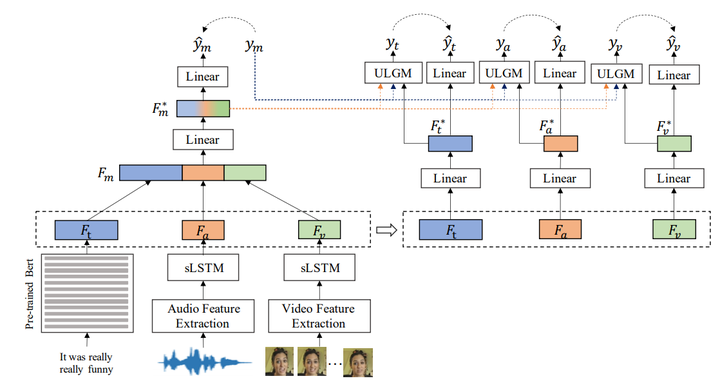Learning Modality-Specific Representations with Self-Supervised Multi-Task Learning for Multimodal Sentiment Analysis

Abstract
Representation Learning is a significant and challenging task in multimodal learning. Effective modality representations should contain two parts of characteristics: the consistency and the difference. Due to the unified multimodal annotation, existing methods are restricted in capturing differentiated information. However, additional uni-modal annotations are high time- and labor-cost. In this paper, we design a label generation module based on the self-supervised learning strategy to acquire independent unimodal supervisions. Then, joint training the multi-modal and uni-modal tasks to learn the consistency and difference, respectively. Moreover, during the training stage, we design a weight-adjustment strategy to balance the learning progress among different subtasks. That is to guide the subtasks to focus on samples with a larger difference between modality supervisions. Last, we conduct extensive experiments on three public multimodal baseline datasets. The experimental results validate the reliability and stability of auto-generated unimodal supervisions. On MOSI and MOSEI datasets, our method surpasses the current state-of-the-art methods. On the SIMS dataset, our method achieves comparable performance than humanannotated unimodal labels.